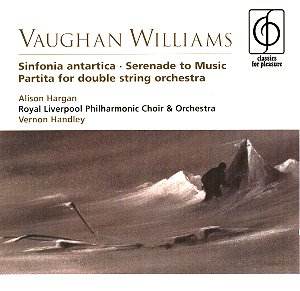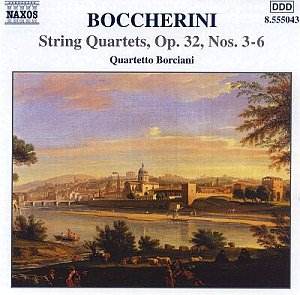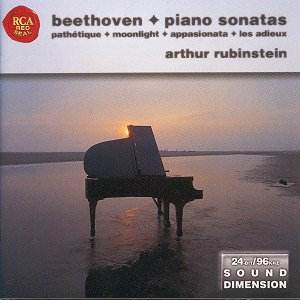 Composer: Ralph Vaughan Williams
Composer: Ralph Vaughan Williams
Works: Serenade to Music (choral version), Partita for double string orchestra, Sinfonia Antartica (No. 7)
Performers: Alison Hargan (soprano), Ian Tracey (organ), Royal Liverpool Philharmonic Choir and Orchestra/Vernon Handley
Recording: Recorded in the Philharmonic Hall, Liverpool on 30 November and 1 December 1990
Label: EMI Classics for Pleasure
Ralph Vaughan Williams, a towering figure in British classical music, is renowned for his ability to weave the pastoral traditions of England with the broader currents of European modernism. This collection, featuring the choral version of “Serenade to Music,” the “Partita for double string orchestra,” and the “Sinfonia Antartica,” encapsulates his stylistic evolution and thematic preoccupations. Each work is a testament to his unique voice, reflecting both his roots in English folk music and his engagement with the challenges of the 20th century.
The “Serenade to Music,” originally conceived for sixteen soloists, takes on a different character in this choral arrangement. While the lush textures of the original are somewhat diluted, Vernon Handley’s direction offers a commendable purity of sound from the Royal Liverpool Philharmonic Choir. The choir’s internal balance shines, though the diction occasionally falters, momentarily obscuring Vaughan Williams’s exquisite lyrical lines. Nonetheless, the overall warmth and blend of the voices create a serene soundscape that captures the essence of this work, which celebrates the transformative power of music. Unlike the original’s more intimate and varied vocal tapestry, this version invites contemplation of the choral writing’s harmonic richness, particularly in the ethereal “O let us sing” section.
Transitioning to the “Partita for double string orchestra,” one notes its intricate textures and the challenges it presents. This work, which languished in relative obscurity since its inception in 1938, finds a compelling advocate in Handley. Its four movements, particularly the third, “Intermezzo: In homage to Henry Hall,” reveal Vaughan Williams’s deftness in juxtaposing light and shadow. The playful homage, with its sly incorporation of Hall’s signature tune, provides an engaging contrast to the more somber expressions of earlier movements. Handley’s interpretation breathes life into the piece, balancing the lyrical and the rhythmic elements with precision, while the string players deliver a nuanced performance that respects both the work’s complexity and its inherent charm.
The “Sinfonia Antartica,” derived from Vaughan Williams’s score for the film “Scott of the Antarctic,” stands as a monumental achievement in his catalog. It is a vivid exploration of the stark, frozen landscape and the indomitable human spirit. Handley’s recording captures the vast orchestral palette with clarity, especially in the use of the wind machine and the wordless female chorus, which evoke the desolation and beauty of the Antarctic. Each movement, underscored by text from poets like Shelley and Coleridge, is imbued with an emotional depth that transcends mere depiction of the icy wilderness. The chilling textures and dynamic contrasts reach their zenith in the final movement, where Vaughan Williams masterfully conveys the struggle against nature. Handley’s direction ensures that the orchestra maintains a taut energy, propelling the listener through this auditory journey.
The sound quality of this EMI reissue is commendable, preserving the warmth and clarity of the original recording while allowing for the intricate interplay of orchestral and choral forces to be fully appreciated. The engineering respects the ensemble’s dynamics, balancing the choir and orchestra seamlessly, which is essential for appreciating Vaughan Williams’s rich harmonic language.
Handley’s interpretations, particularly in the “Sinfonia Antartica,” have set a standard that resonates with both fidelity to the score and emotional engagement. His ability to navigate the breadth of Vaughan Williams’s stylistic nuances positions this recording as an invaluable resource for both connoisseurs and newcomers alike. Each work within this collection illuminates the composer’s legacy, underscoring his profound understanding of the human experience through music. This disc is a significant contribution to the Vaughan Williams discography and deserves a place in any serious collection.



